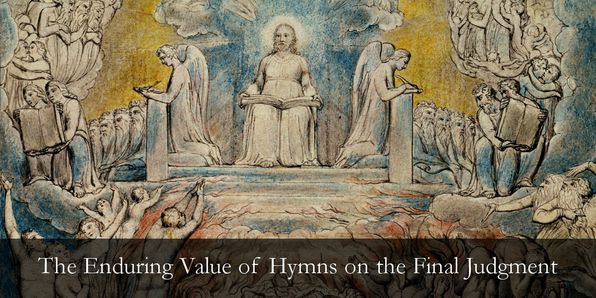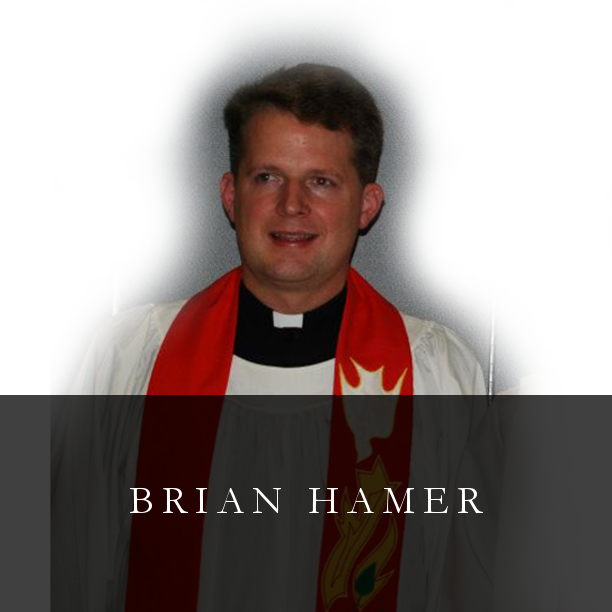An entire dissertation could be written on how subverting our doctrine and practice because of how an unchurched neighbor might feel if she came to church is, in a word, ridiculous. Let us simply ask, Why do we sing judgment hymns on selected Sundays at the end of the church year and on selected Sundays in Advent, especially the Sundays that address the end times and the final judgment?
Weaving together theological themes from these scriptural foundations, the first four stanzas of “The Day is Surely Drawing Nigh” proclaim the day of final judgment and its concomitants: “God’s Son . . . Shall with great majesty appear,” and “A trumpet shall sound,” to awaken all flesh. “A book is opened then to all,” revealing what each of us had done.” And what will happen to those who persisted in final impenitence? “Then woe to those who scorned the Lord / And sought but carnal pleasure,” for they shall “to Satan be delivered” for the final consummation of the Law in eternal damnation.
What does this word of Law mean for us? As I see it, there are basically three ways to react to the preaching of the Law. First, we could get our feelings hurt, similar to a young child who is overtly sensitive to any corrective measure. But that is not the intent of the Law. Second, we could be offended by the Law. This was no doubt the concern of the aforementioned lay leader who did not want her neighbor to be offended by the Law. To be sure, the Law is offensive to the sinner because it demands that we deny our sinful selves through repentance. But offending the sinner is not the heart of the Law. Third, we could die under the Law because the Law kills. The Law exists to strip of us our idols, of our self-righteousness, yes, of everything in us that is not of Christ.
But the hymn does not end with the Law. As with most hymns in the judgment section of the hymnal, one must sing the entire hymn to proclaim the fullness of the Gospel. See, for instance, the rich Gospel in stz. 5-7, which preaches the good news that Christ is hard at work for us and for our salvation: “O Jesus, who my debt didst pay / And for my sin was smitten.” Here we address our prayers to Jesus, banking everything on His bloody Passion as our only hope and consolation. “Within the Book of Life, oh, may / My name be also written!” – for God has elected us from eternity, written our names in the Book of Life, and read our names from the Book of Life at our Baptism. And His work is not just past tense, but continues every day from God’s right hand: “Therefore my Intercessor be,” for Christ lives to intercede and plead for us before the Divine tribunal. “O Jesus . . . hasten our salvation.” One is reminded here of one of the earliest Christian prayers, “Our Lord, Come” (Maranatha) – an invocation of His presence both now in the Lord’s Supper and at the end of days. And then we sing this final plea for Divine clemency: “Come, mighty Judge, and make us free / From every evil! Amen.”
So what about the panicked and stricken lay leader in Western New York who wanted to omit judgment hymns for her own mental health and blamed in on her unsuspecting neighbor? Is it possible that this woman was only hearing the Law in these hymns, but not hearing the Gospel? We sing hymns from the judgment section because they deliver the full strength of the Law for the sake of the final consolation of the Gospel. For those who repent of their sins and place their end-times hope solely in Jesus, the final judgment is richest and purest Gospel. The verdict to be confirmed on the last day is the same sentence that is spoken to us a thousand Sundays: “I forgive you all your sins in the name of the Father and of the Son and of the Holy Spirit.”
Rev. Brian Hamer
Redeemer Lutheran Church
Bayside, New York



 RSS Feed
RSS Feed
